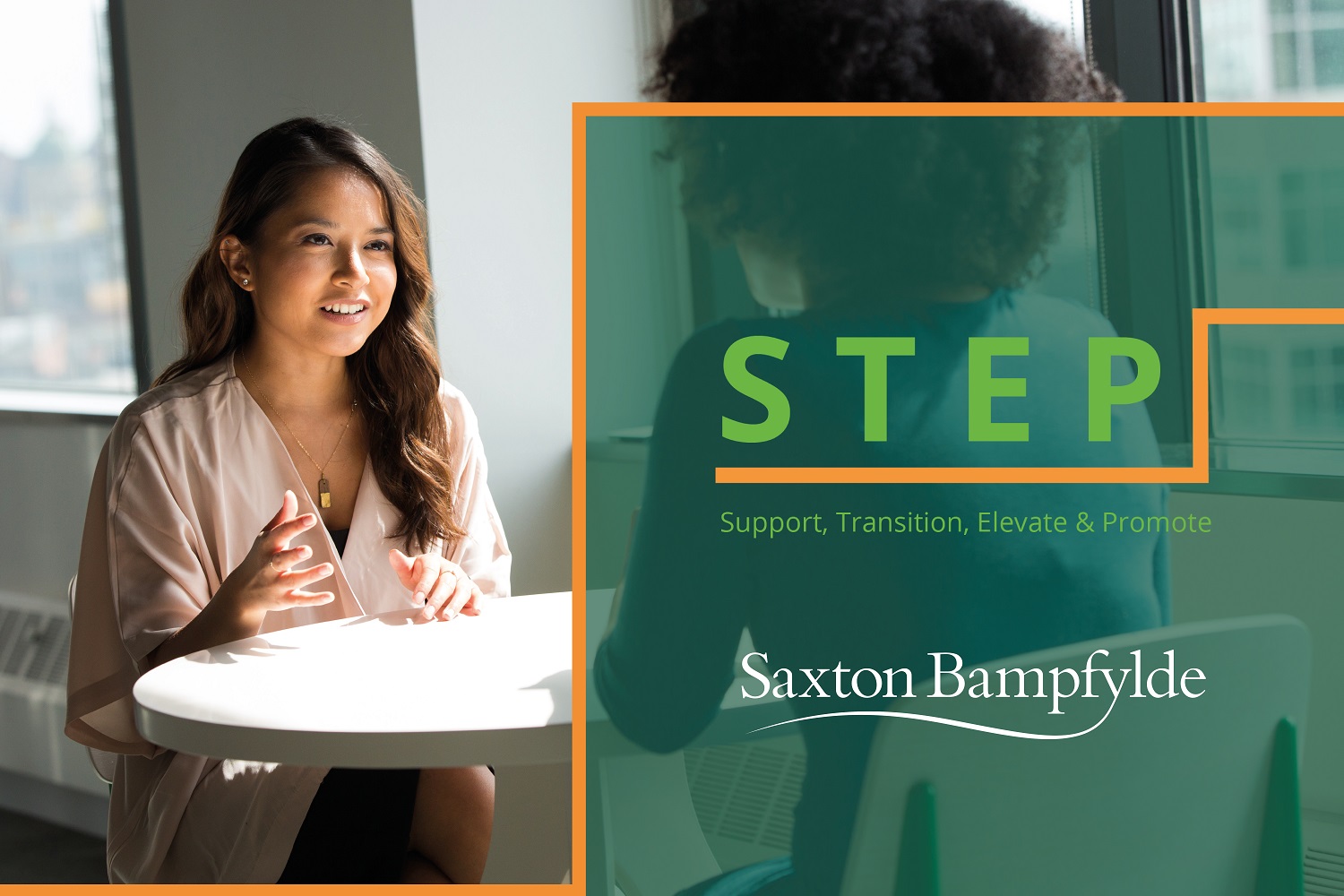
We are delighted to share insights from four of the STEP Programme coaches. We hear about what motivated them to become coaches and how more can, and should, be done to bring forward and support diverse leaders. They offer advice about what people should be looking for in coach and how to find the right one.
Joyce Sarpong:
What do you think is different about STEP? What prompted you to become involved?
The STEP programme is unique being specifically designed for leaders from a Black, Asian or Minority Ethic background who are considering a significant career progression. It is aimed at complementing traditional technical leadership programmes developed by organisations. STEP does not start from a place of deficit. Rather, it recognises accessibility to opportunities and pathways and provides a diverse group of coaches and mentors with substantial experience across different sectors.
I am a black woman who has progressed in my corporate career, from being a technical employee to managing people and transitioned to working with executives and being a board member. In addition to my leadership roles, I also have access to a vast network of diverse, cross-sector individuals.
There is a big drive to create a level playing field for women and young people. When I heard about STEP I was inspired to get involved with and support it to share my wealth of experience and help create a level playing field for minority ethnic leaders.
What inspired your journey to become a coach or mentor and how does this influence the way in which you coach?
I am passionate about sharing my knowledge and experiences, connecting with others and helping others to connect. I believe that knowledge should be shared and that mentoring is two-way and offers a lot to both the mentee and the mentor through knowledge exchange and new perspectives. I also believe professional networks are one of the most powerful tools for career advancement. My mentoring is more exploratory in style and this depends on curiosity, discovery and guidance. I consider it a guided discovery journey driven by facilitated conversations.
What advice would you give people who are looking for a coach?
- They must ensure they have some understanding of their own needs. Once needs are understood, the right type of coach can be identified.
- The relationship between a mentor and mentee should be that of a partnership (not a friendship) and therefore, there needs to be some form of rapport / chemistry and trust (supporting environment).
- Seek a coach who helps you get curious, find new discoveries to gain clarity both on the inside (in regard to your goals) and from the outside. If individuals are not curious about the terrain they need guidance with, then they won’t want to explore it.
Can you describe a big change you have gone through or helped a client through?
I have been a board member of an educational establishment for the past three years, recently appointed as the Chair of the Appointments Committee and have been involved in a number of board member appointments. At the time of joining the board I was the only Black and Ethnic Minorities (BAME) board member. Since then, I have been involved in the establishment of the Equality, Diversity and Inclusion (EDI) Steering Committee, advised the senior leadership team on how to effectively manage EDI issues and bring about cultural change as well as recruit two other BAME individuals onto the board – the latter being a black women.
Can you talk about an important transition point in your career, why was it important? What support helped you and was there more you wish you had?
Prior to having children, I was a senior manager at a payment organisation. When I had my four children I chose to stay at home to raise them. As the children became teenagers, I transitioned from being a stay-at-home mum to a working mum across a portfolio of roles, namely MD of my own small business, a board member for two educational institutions and a part-time lecturer with a London Business School. This transition was important to me as I wanted to be a positive role model to demonstrate that it is possible for women to have children and a career. I have been very fortunate to have a supportive partner but with hindsight, a good coach / mentor could have guided me to realise my goals quicker.
What has the last year taught us about the need to have more diversity at the leadership level?
The past year has taught me a lot about the need to have more inclusivity at the leadership level. The killing of African-American George Floyd in 2020 sparked protests across the world and the rise of the Black Lives Matter Movement. These events have given Black and Ethnic Minorities a voice and a realisation that whilst the protests are a rallying call for an end to police violence, there is a need to capitalise on this momentum to bring about diversity, equality and inclusivity for Black and other ethnic minorities at the leadership level. Despite this, stats coming out at the start of this year were not good, highlighting that the more work needs to be done:
- Zero black people at the top of FTSE 100 companies
- Just 10 out of 297 leaders in the top three roles are from a BAME background.
Therefore, it’s unlikely that these companies will hit the government-backed target of employing at least one director from an ethnic minority by the end of 2021.
More worrying is a drop in BAME employees in the leadership pipeline. Fewer than one in 10 of these future leaders come from a BAME background. There are really clever people in their 30s and 40s who look at these big companies and are more than qualified – and then look at the website and talk to people in the companies and go into reverse gear.
Furthermore, as the comments by Bill Michael, KPMG’s UK boss (i.e., telling his employees that ‘unconscious bias is complete crap’) highlights, there needs to be a change of culture within some of these organisations and more training about unconscious bias.
Therefore, it is clear that the STEP programme is much needed to understand the challenges that BAME employees face and how the STEP can add value.
What are the barriers to getting more minority ethnic individuals to a leadership level?
Despite the introduction of Race Equality legislation in 1965, racism and discrimination continues to our affect society and major institutions. It permeates into board rooms, recruitment processes (whether through overt or unconscious bias) and employment and workplace practices.
The 2021 commission on racial inequality found evidence of “persistent race-based discrimination” – despite barely mentioning the phrase in its widely contested report published.
The government commissioned McGregor Smith Review 2017 found that:
- There is discrimination and bias at every stage of an individual’s career, and even before it begins, from networks to recruitment and then in the workforce, it is there.
- BAME people are faced with a distinct lack of role models, they are more likely to perceive the workplace as hostile, they are less likely to apply for and be given promotions and they are more likely to be disciplined or judged harshly.
- BAME individuals in the UK are both less likely to participate in and then less likely to progress through the workplace, when compared with White individuals. Barriers exist, from entry through to board level that prevents these individuals from reaching their full potential. This is not only unjust for them, but the ‘lost’ productivity and potential represents a huge missed opportunity for businesses and impacts the economy as a whole.
“Every person, regardless of their ethnicity or background, should be able to fulfil their potential at work. That is the business case as well as the moral case. Diverse organisations that attract and develop individuals from the widest pool of talent consistently perform better.” Baroness McGregor-Smith.
Joyce Sarpong – Biography
Joyce Sarpong is entrepreneur and educator who is passionate about educating the next generation and nurturing them towards fulfilling their potential. She is a lecturer with the University of Westminster, Business School. Joyce is also a governor for a leading Independent School (voted the Sunday Times’ choice as the top London Independent Secondary School for 2017). She has a background in STEM (with a First Class degree in Computer Studies) and over 20 years of experience gained through consultancy work for public and private sector. Her entrepreneurial experience enables her to provide work experience / internships. She is also a trained Colourstrings Music teacher and ran her own music classes for pre-school children and taught in nurseries for a number of years. With four school age teenagers of her own, Joyce understands the pressures and anxieties that parents have surrounding decisions about the education of their children. Her family set up a charity in Ghana (her country of heritage) that has supported over 100 children (a number of whom have gone onto university education). Joyce volunteers her time to support the foundation. Education has always been a passionate for her, growing up in a boarding co-ed school in Devon and a senior all girls school in Sussex. She has particular interest in girls schools, London schools and boarding schools. Her principal aim is to ensure that all children enjoy quality education that enables them to develop to their full potential in a safe, happy and nurturing environment.
Read further interviews in the series
